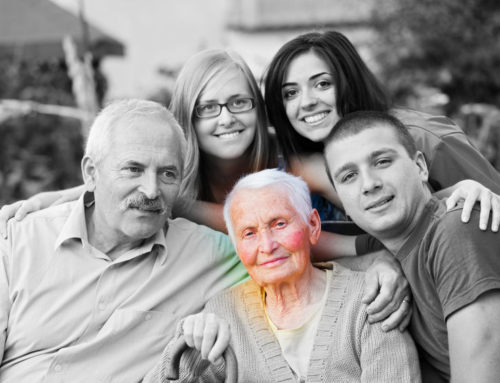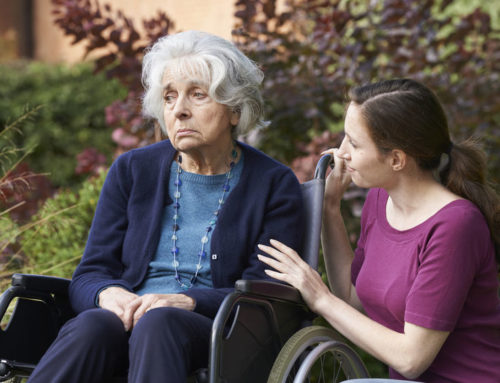As one might imagine, Alzheimer’s disease complicates communications between caregivers and their loved ones. Those individuals who display the more advanced symptoms of the disease can easily forget how to communicate their needs to their caregivers. For instance, individuals may suddenly forget the words to express their need to use the restroom, or they may accidentally substitute an incorrect word. In such cases, “I need to go to the bathroom” becomes “I need go to the shower.” Worse yet, some individuals may even forget some of their personal needs altogether.
All that said, impaired communications make for potentially stressful situations. Since Alzheimer’s disease puts strain on communication between caretakers and their loved ones, caretakers may benefit tremendously from paying attention to non-verbal communication, such as body language, when providing care. For instance, should a caretaker notice a loved one pacing around a room or showing other signs of restlessness, the caretaker may read that as a clue that his or her loved one needs to use the restroom or feels an unusual surge of pain. Learning to pay attention to non-verbal communication such as body language can help you avoid situations that end-up both embarrassing you loved one and creating stress for you.
The consequences of failing to provide your loved one with his or her needs may be great. Indeed, your loved one may act out as a result of you constantly misunderstanding him or her, and such an episode could inadvertently result in a fall, broken bone, or a sudden and unexpected rise in blood pressure. If you feel that your loved one has suffered due to persistently poor communication of assisted-living personnel or another caregivers, then you should reach out to an Ohio elder attorney immediately. Elder attorneys have experience dealing with such matters, and they will know the best course of action that ensures neither you nor your loved one are held responsible for the fault of another.





